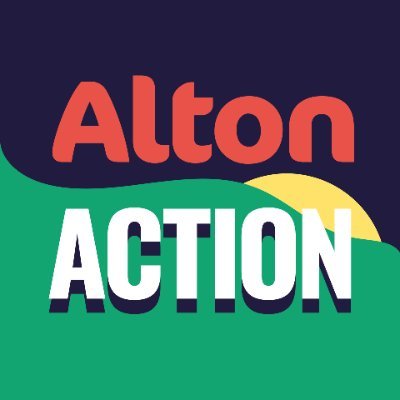STORIES: Alton Action
Alton Action planning for a community-led regeneration of the estate
A People’s Plan for Alton Estate. To ensure that the regeneration of Alton Estate would benefit the people living on the estate, Alton Action created an alternative vision for the future of their community. Protecting heritage, improving the environment, and securing decent housing for all are among the plan’s key priorities. Angus Robertson tells us how Alton Action works to influence the regeneration of Alton Estate and what we can learn from their experiences.
By Hal Mellen, volunteer Planning Aid for London
Setting up a Community Group
Campaign group Alton Action emerged in August 2020 in response to the pending regeneration of the Alton Estate in Roehampton (Wandsworth).
The group aims for “A better set of outcomes for the people who live on the estate, particularly people who were struggling anyway with austerity and the effects of the Covid-19 pandemic” - Angus Robertson, campaigner, Alton Action
Rather than completely opposing regeneration plans of Wandsworth Council, together with residents Alton Action has created an alternative vision of the estate’s future. One that benefits the local community, has a positive impact on the environment, and protects the estate’s heritage. Alton Action offers an inspiring example of how you can develop a community plan. This can be a powerful tool for campaigns and community groups looking to shape regeneration proposals positively and proactively.
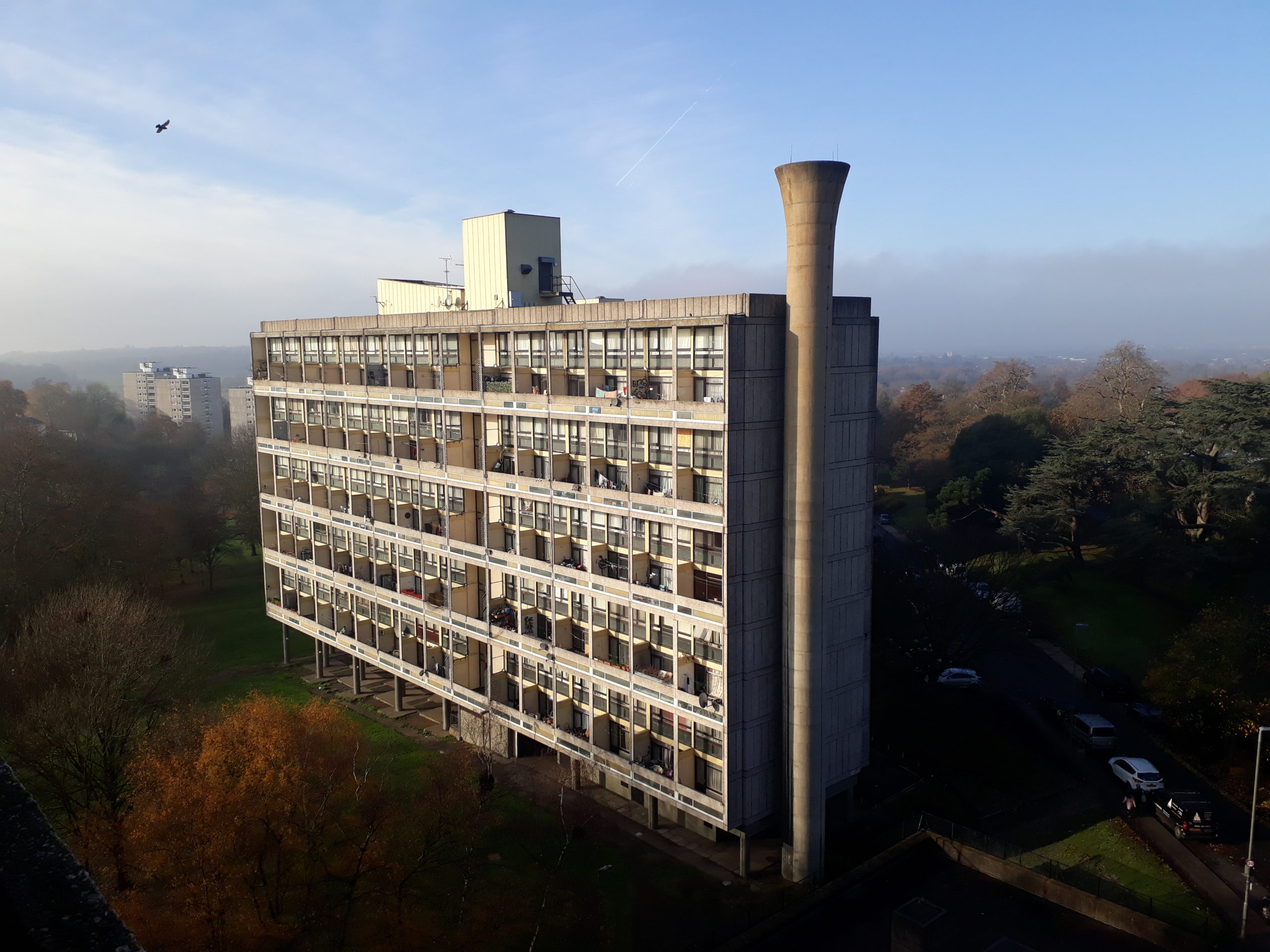
The Alton Estate
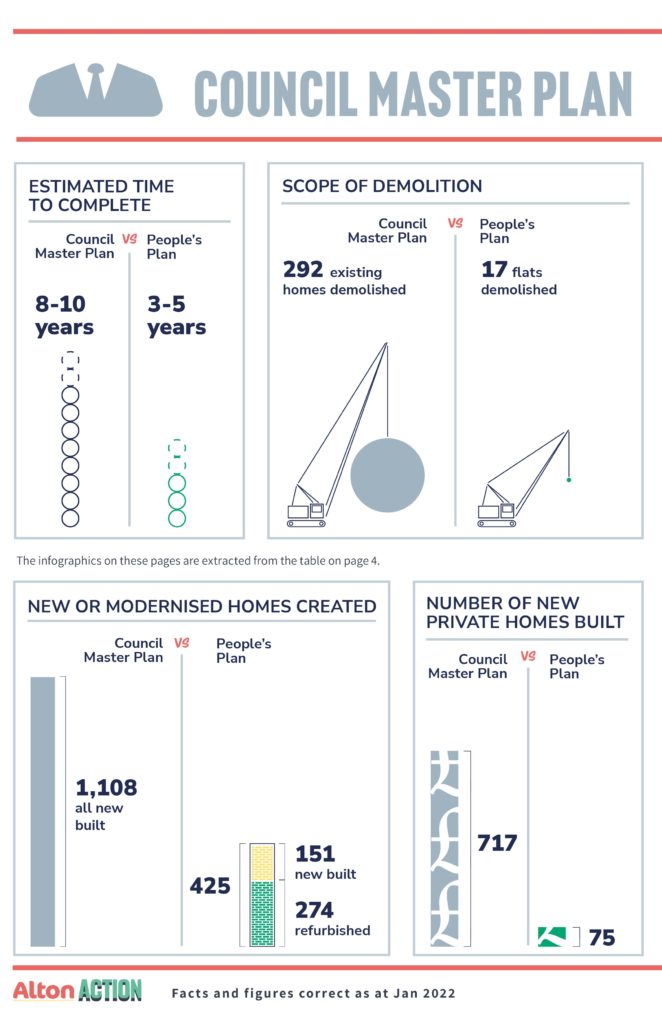
Original plans for the Alton Estate
As early as 2004 Wandsworth Council aspired to regenerate Alton Estate. Since then, years of plan-making and consultation processes followed without the building or refurbishment of any homes. In 2016 the council partnered with housebuilder Redrow for the project. Their plans for the estate included the construction of 1,108 homes, the demolition of 288 existing homes, and the construction of 9,572m2 of other uses such as retail. But in August 2020 Covid-19 pandemic caused Redrow to withdraw from the partnership, throwing plans into disarray and effectively stopping the regeneration.
Nonetheless, the council has since announced their intention to go ahead with the scheme with a new development partner. The Mayor of London approved the plans in January this year despite expressing “serious concerns” over the segregation of the relatively small number of social rented homes at the periphery of the site when he first reviewed the scheme. He also identified shortcomings in the consultation process, and was unimpressed by the decant strategy (the plans for moving existing tenants to the new blocks). These concerns provided an opportunity for Alton Action to develop an alternative plan at the time.
Wandsworth Council's original plan for the Alton Estate
Building partnerships with universities
Daniel Fitzpatrick and Dr Pablo Sendra, two academics at the Bartlett School of Planning at University College London (BSP at UCL). Both had previously assisted campaign groups in London to respond to regeneration plans and had published their research on what tactics and approaches of community groups have worked best. A partnership was formed. Such partnerships with universities can help community groups access expertise, resources, and funding. A successful funding application to the Higher Education Innovation Fund of UCL provided financial support for developing the community plan. The funding enabled Alton Action to run workshops with the local community to identify residents’ needs and discuss the best regeneration approach. Despite the Covid-19 pandemic, Alton Action managed to engage many fellow residents. Their website and social media channels, and, when restrictions allowed, leafleting, door knocking, and speaking with local groups, got people involved.
The workshop findings have been included in the draft of Alton Estate’s People’s Plan. This plan shows that there is an alternative way to make improvements to the estate and the lives of residents. Alton Action is clear that the plan must be shared within and beyond the local community. It should be part of discussions with councillors, Assembly Members at the London Assembly, and Members of Parliament, so it has an impact. Alton Action is now meeting politicians and summarising the community plan to help get more residents involved. The group has also created a petition to build further support. And the plan itself is organic and flexible. It will change, but the focus will continue to be on local needs and achieving positive social and environmental outcomes for current residents.
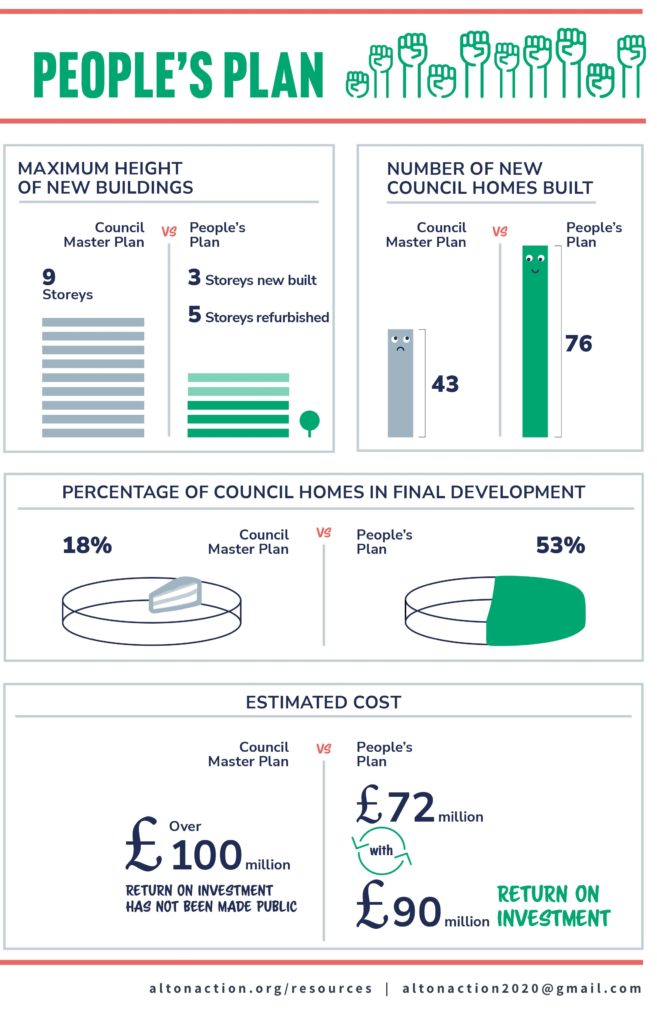
Alton Action's draft community plan
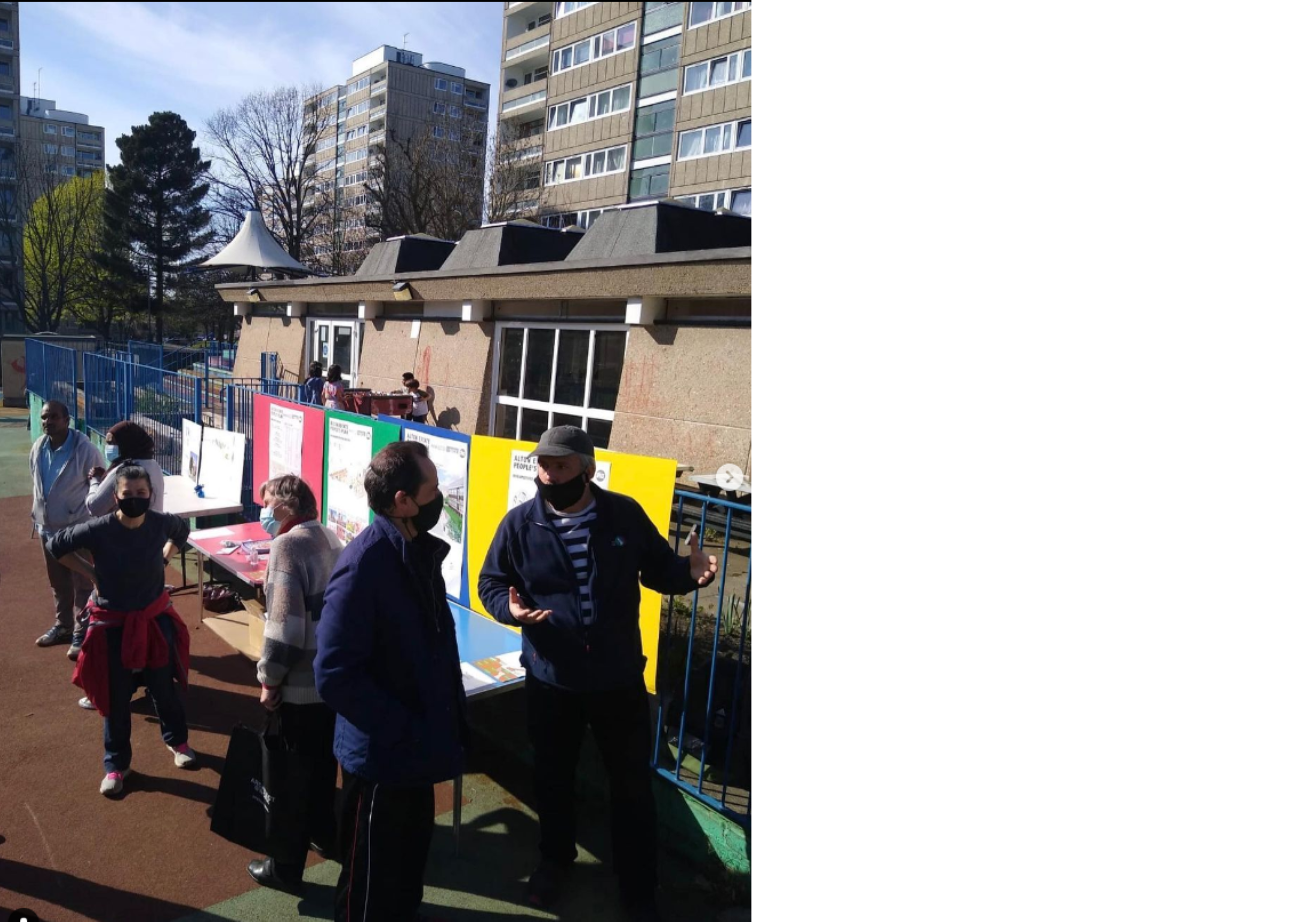
Collaboration is key
Secondly, collaboration is key:
“You are not alone, you don’t need to do everything yourselves, and there are a lot of people who can help to educate you, and provide you with resources”. - Angus Robertson, campaigner, Alton Action
Though the campaigners began their journey thinking their experience was unique, they quickly learned that residents everywhere in London experience challenges when participating in regeneration processes. The campaign has been greatly helped by a strong network of supporters, such as researchers at UCL, informal community alliance Just Space, and the London Tenants Federation (LTF). And the discovery of funding sources also helped.[3] So you need a good understanding of the support that is available when campaigning: there is help out there and other community campaigns can share what has worked for them.
Alton Action’s story continues. What is clear already is that publishing an evidenced and participatory community plan is a powerful strategy for a campaign. This allows the campaign to bring together expertise from other organisations, helps promote the campaign’s vision, and makes it easier to involve other residents. It also helps residents articulate their needs and demands in discussions with the council, the Greater London Authority (GLA), and developers. With growing support, a flexible attitude, and local resident involvement, the campaign is in good stead for the future.

